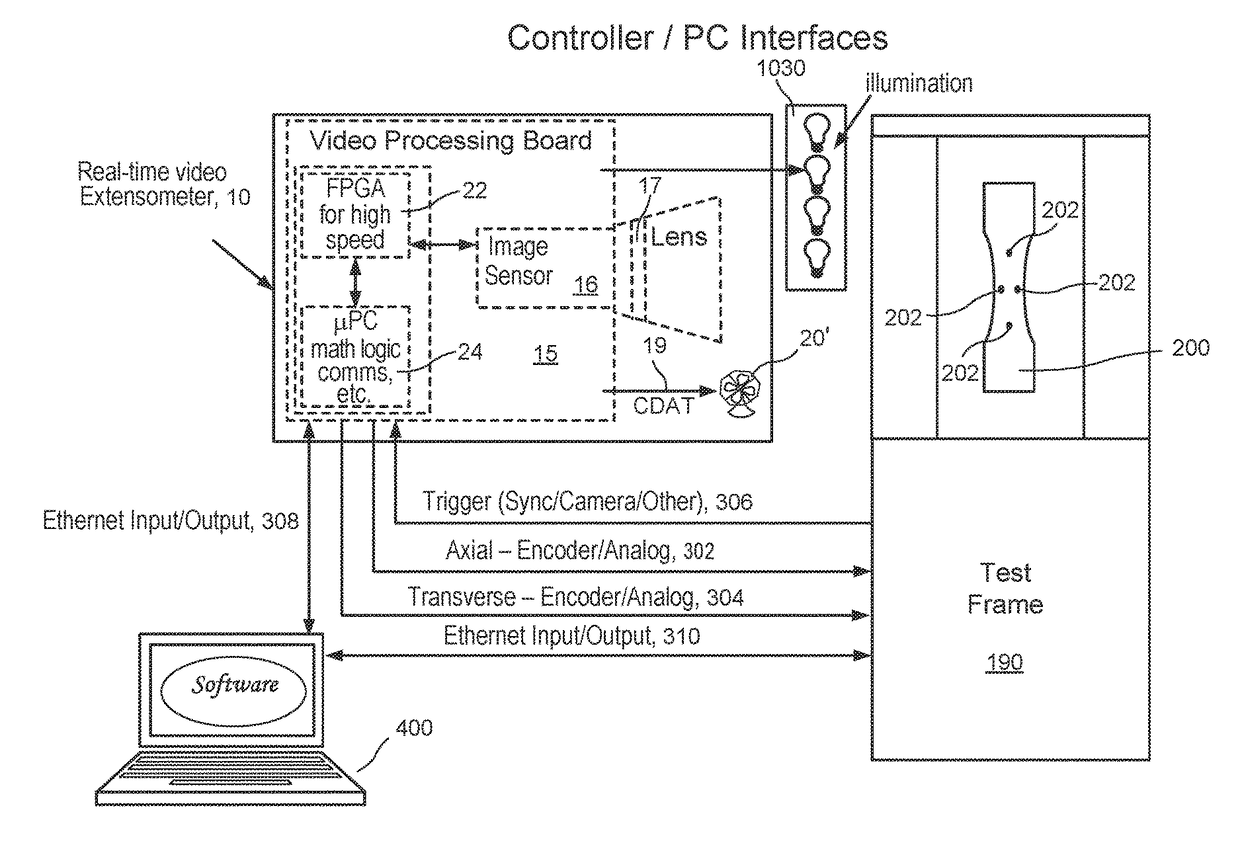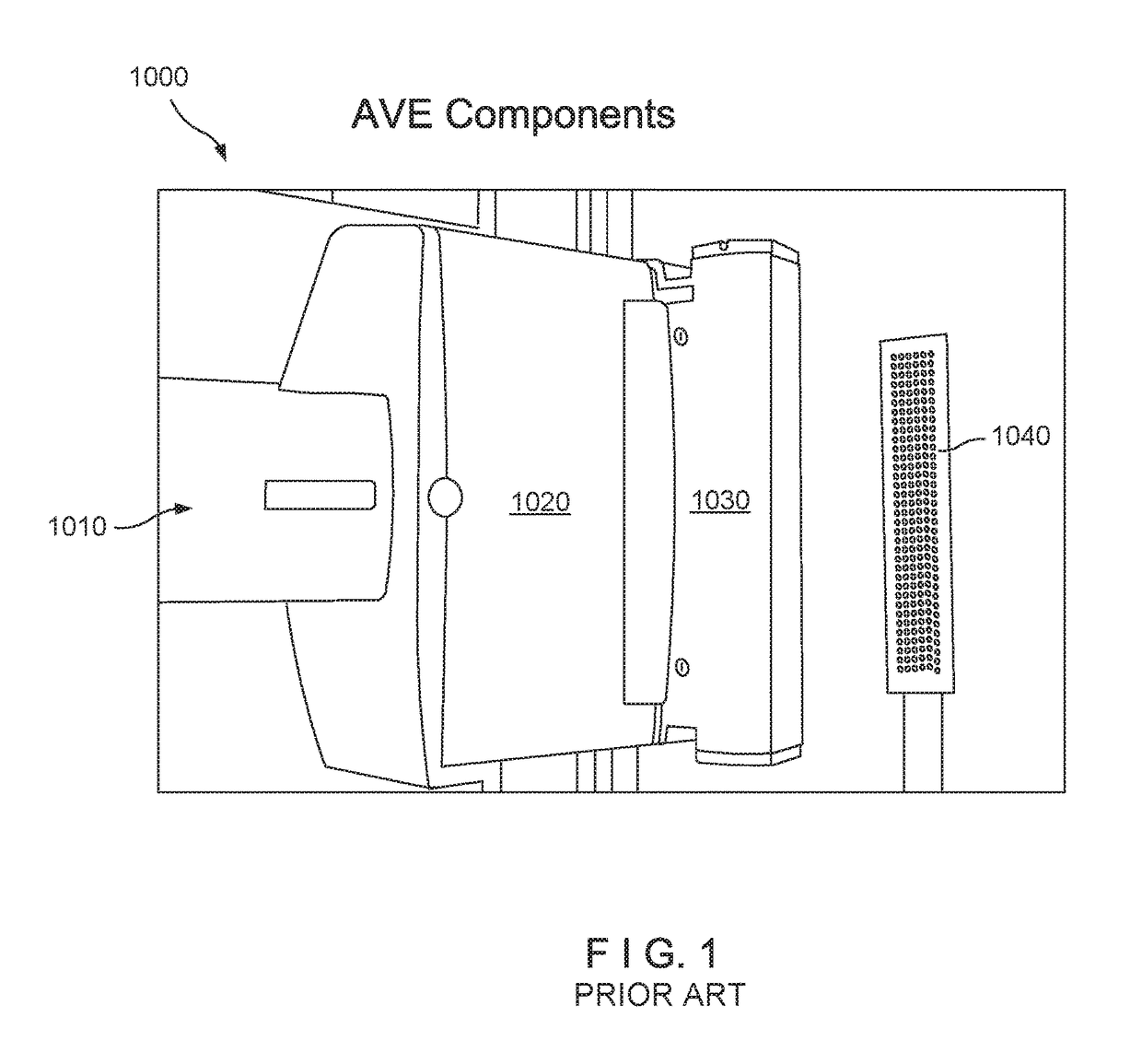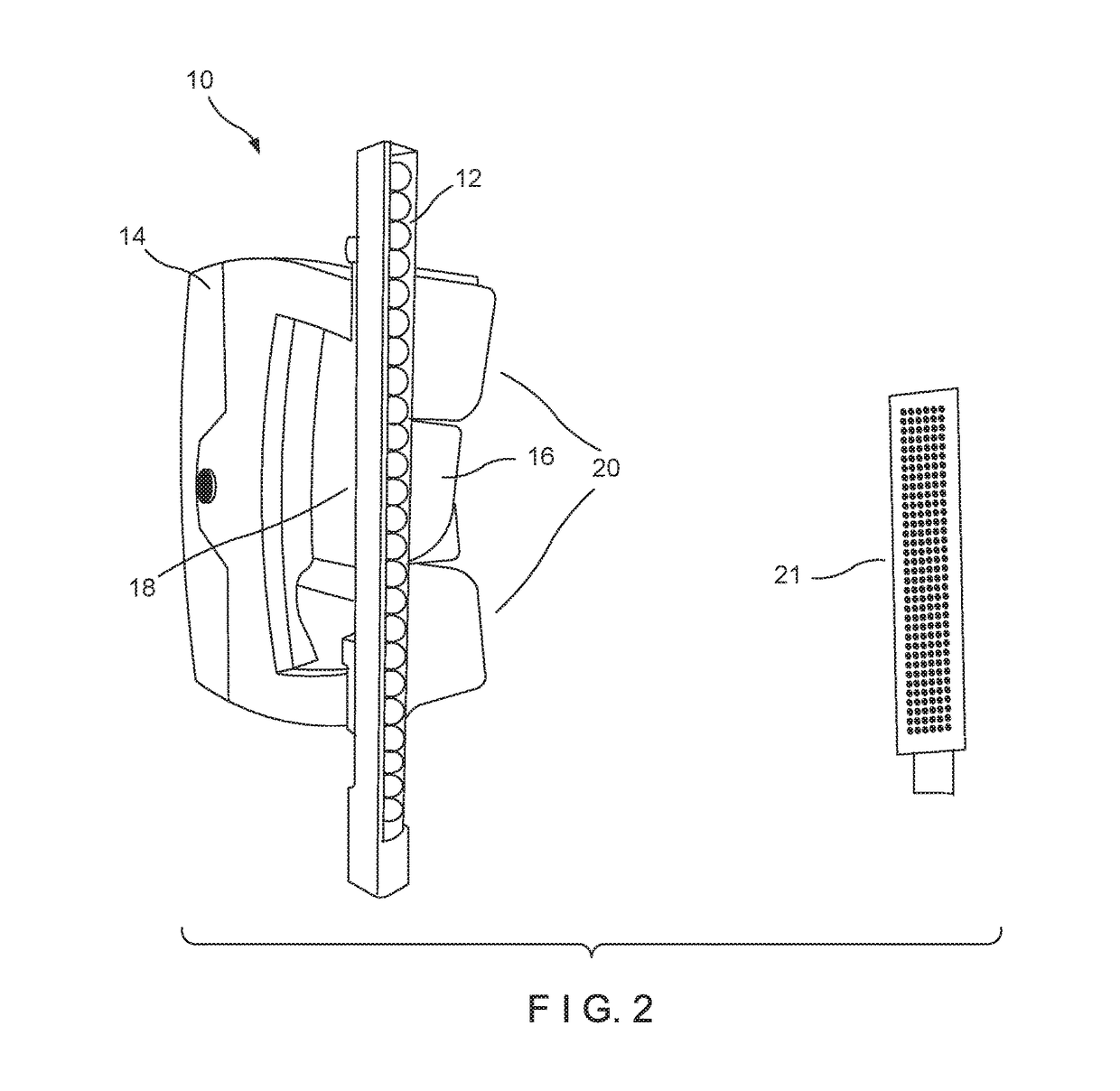Real-time video extensometer
a real-time video and extensometer technology, applied in the field of real-time video extensometer, can solve the problems of system consumption of an entire image, high cost, and restrictive aspect of measuring strain with a video device, and achieve the effects of improving accuracy, high frequency images, and low latency times
- Summary
- Abstract
- Description
- Claims
- Application Information
AI Technical Summary
Benefits of technology
Problems solved by technology
Method used
Image
Examples
Embodiment Construction
[0017]Referring now to the drawings in detail wherein like numerals refer to like elements throughout the several views, one sees that FIG. 1 is an extensometer 1000 of the prior art. This extensometer 1000 utilizes an external camera, PC and data communications to capture images and produce extension / strain values. The extension / strain data is calculated by software in both the PC and via analog outputs. More specifically, electronics housing 1010 holds a printed circuit board, a camera (typically with a polarizing and light filter), and lenses for different fields of view. The image received by the camera is taken through a constant density air tube (CDAT) 1020. An integral illumination unit 1030 is fixed to the side of the constant density air tube (CDAT) 1020. Further, a two-dimensional calibration fixture 1040 is provided.
[0018]FIG. 2 illustrates the external appearance of an embodiment of the real-time video extensometer 10 of the present disclosure. The real-time video extens...
PUM
| Property | Measurement | Unit |
|---|---|---|
| stress | aaaaa | aaaaa |
| time-stamping | aaaaa | aaaaa |
| constant density | aaaaa | aaaaa |
Abstract
Description
Claims
Application Information
 Login to View More
Login to View More - R&D
- Intellectual Property
- Life Sciences
- Materials
- Tech Scout
- Unparalleled Data Quality
- Higher Quality Content
- 60% Fewer Hallucinations
Browse by: Latest US Patents, China's latest patents, Technical Efficacy Thesaurus, Application Domain, Technology Topic, Popular Technical Reports.
© 2025 PatSnap. All rights reserved.Legal|Privacy policy|Modern Slavery Act Transparency Statement|Sitemap|About US| Contact US: help@patsnap.com



